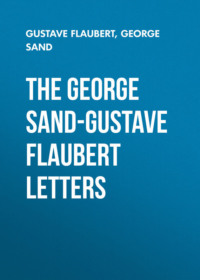Sadece Litres'te okuyun
Kitap dosya olarak indirilemez ancak uygulamamız üzerinden veya online olarak web sitemizden okunabilir.
Kitabı oku: «The George Sand-Gustave Flaubert Letters», sayfa 6
Bir şeyler ters gitti, lütfen daha sonra tekrar deneyin
5,0
1 puan
Türler ve etiketler
Yaş sınırı:
12+Litres'teki yayın tarihi:
28 eylül 2017Hacim:
430 s. 1 illüstrasyonTercüman:
Telif hakkı:
Public Domain
